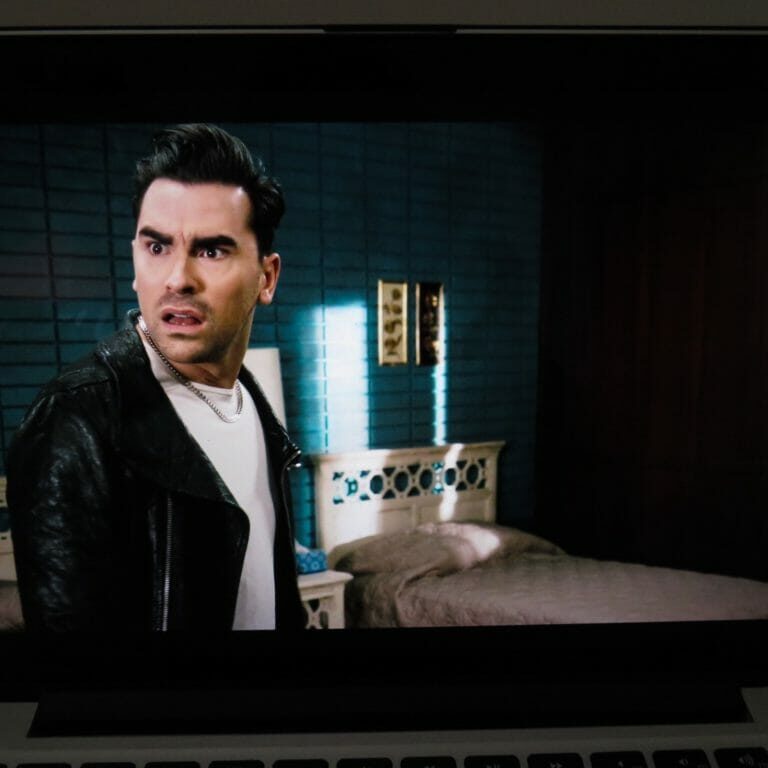
A show dubbed “Canada’s answer to Arrested Development” recently started its fifth season on CBC.
But Schitt’s Creek isn’t just some a carbon copy of an American sitcom. I’d argue it’s one of the best shows on television right now. There are a few reasons for this, but I’m going to focus on one: his name is David Rose. David is the adult son of the protagonist family of four, played by Schitt’s Creek co-creator Dan Levy. He’s also unambiguously, unapologetically pansexual.
People who identify as pansexual are attracted people of all genders. As a bisexual woman, I’m comfortable using the terms bi and pan interchangeably – but some people prefer one over the other.
Schitt’s Creek explains it pretty gracefully: the day after David sleeps with his female friend Stevie, she broaches the subject of sexuality while the two shop for wine. She explains that she only drinks red wine, and up until the previous night, she’d assumed the same of David.
“I like the wine and not the label,” he says, understanding her implication.
Stevie gets it.
That said, the show doesn’t hide behind euphemisms the whole time. David’s father, Johnny (Eugene Levy) later says it casually, outright: “my son is pansexual.” Another character responds by mistaking “pansexual” as a “cookware fetish”– a joke I’m sure most of us are sick of hearing by now – but that’s pretty much the end of jabs about David’s sexuality.
This is a step above most other shows with bi or pan characters, who may be portrayed as dating people of different sexes but refuse to use the b-word or the p-word (see: Orange is the New Black).
As an audience, we laugh at David, sure. But David is funny because of his extravagant fashion choices (much like his mother), his awkwardness and his bluntness. He’s also so, so loveable. He doesn’t conform. He’s not “a normal guy who happens to be queer” so that conservative audiences can feel comfortable with his queerness. It’s about time we saw that outside of, well, Glee.
What really matters
In season four, David begins a relationship with a man named Patrick. None of the other characters are apprehensive about two men being together, and in an Instagram post on Oct. 11 last year (National Coming Out Day), Dan Levy explained why:
“In Schitt’s Creek, bigotry and homophobia don’t exist. I made that decision because I wanted to show the transformational effects of love – how loving openly and wholly, without fear of judgement, can let light into the most protected of hearts.”
And that’s the core of it. As an audience, we are happy to see David in a supportive and loving relationship, so his partner’s gender hardly matters.
Schitt’s Creek isn’t perfect (um, did anyone else cringe when Moira used the word “ladyboy” in season two?), but David Rose gives me hope for the future of multisexual representation in TV and film. We’ve made leaps and bounds since the year 2000 when an episode of Sex and the City depicted Carrie Bradshaw agonizing over dating a bi man.
“I’m not even sure bisexuality exists. I think it’s just a layover on the way to Gaytown,” she said.
Ouch. These days, however, we have bi/pan characters on shows such as Brooklyn Nine-Nine, Jane the Virgin and – most recently – The Good Place. If that’s not progress, I don’t know what is.






